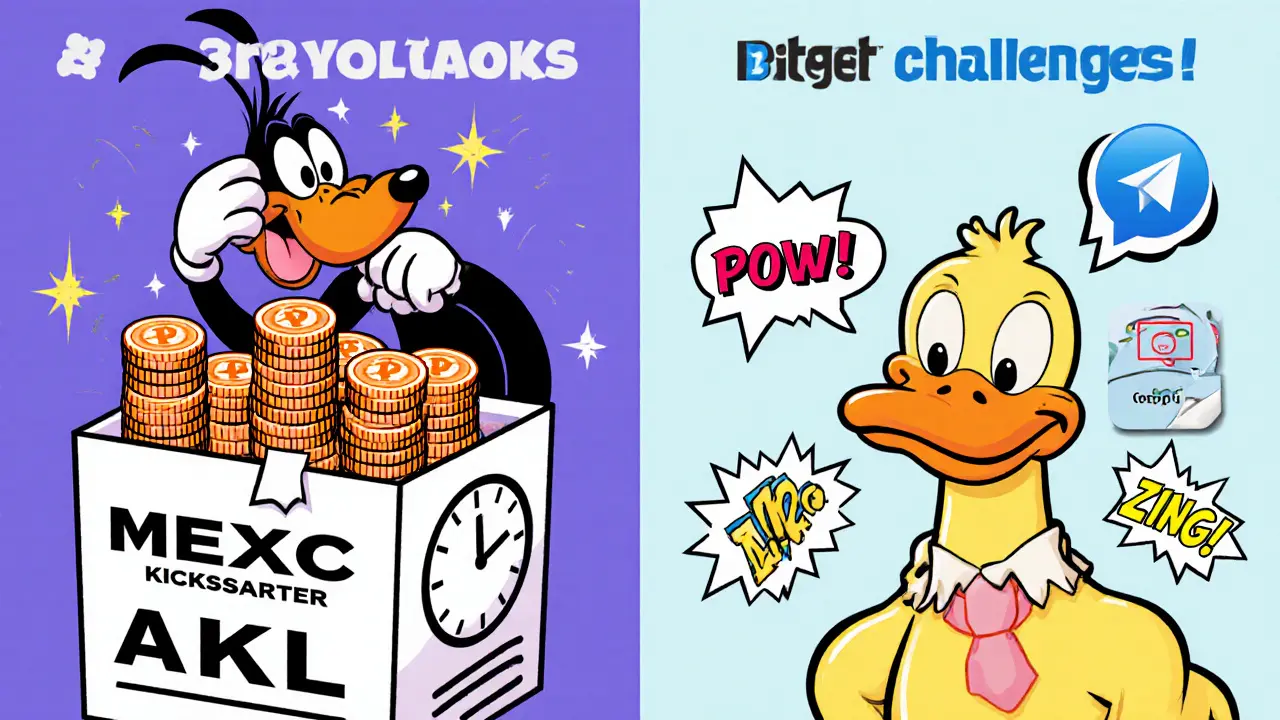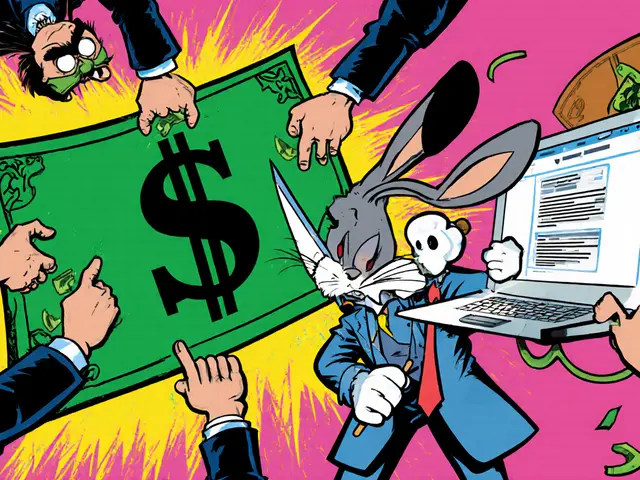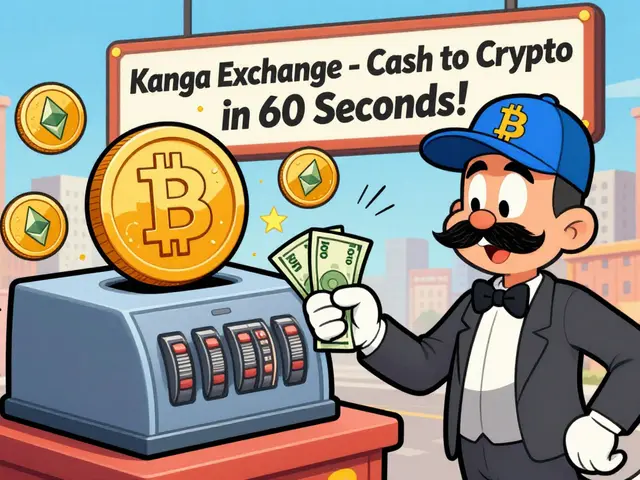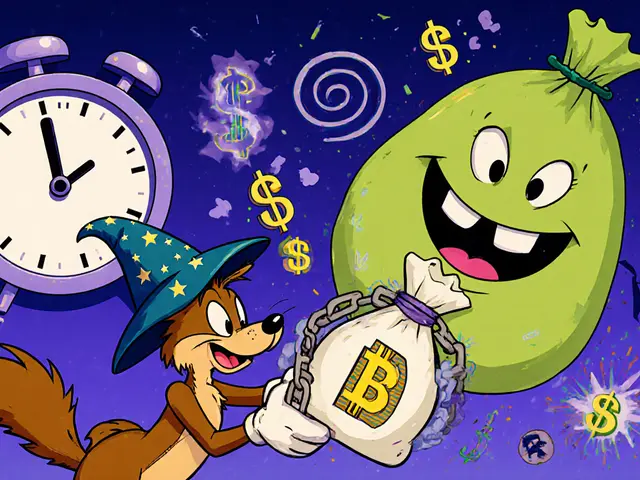
JF Token Airdrop Value Calculator
Calculate Your JF Token Value
Enter your participation details to see estimated results
Looking for the lowdown on the Jswap.Finance airdrop? This guide walks you through what the JF token is, how the airdrop has been run, who could claim it, and why the current market situation matters before you stake any effort.
What is Jswap.Finance and the JF token?
Jswap.Finance is a decentralized exchange (DEX) that launched on OKExchain. Its goal is to be a one‑stop DeFi hub, offering swap mining, liquidity mining, single‑token vaults, DAO‑driven dividends, and a cross‑chain bridge. The platform’s native governance token is called JF token. With a hard cap of 100 million tokens, JF is designed to earn holders voting power, share in protocol fees, and benefit from a deflationary buy‑back‑and‑burn model.
Shortly after debut, Jswap.Finance attracted close to 100 000 users and amassed over $60 million in total value locked (TVL). Some promotional pools even advertised eye‑popping APYs-up to 1 476 % annualized for JF/USDT pairs on a 24‑hour basis. Those numbers made the project an obvious target for airdrop campaigns aimed at bootstrapping a community.
How the JF airdrop has been executed
The most documented distribution happened through the MEXC exchange’s Kickstarter program in November 2021. Participants voted for a JF listing by staking a total of 23 648 779 MX tokens. Successful voters received a flat reward of 35 200 JF tokens each, deposited directly into their exchange wallets.
Beyond MEXC, the Bitget platform periodically advertises “airdrop challenges” where users complete tasks-such as completing a trade, joining a Telegram group, or sharing a post-to earn convertible rewards that can be swapped for JF. These campaigns are less formal than the MEXC Kickstarter but still serve as a funnel for new users.
Both pathways share three core steps: (1) meet a participation requirement, (2) submit a wallet address that supports the OKExchain network, and (3) wait for the snapshot and token distribution. The mechanics differ in the exact triggers-vote‑based vs. task‑based-but the end goal is the same: a free allocation of JF tokens.
Eligibility and claim process
- Identify a current or upcoming airdrop on an official partner exchange (MEXC, Bitget, or future listings).
- Ensure you have an OKExchain‑compatible wallet (e.g., MetaMask configured for the network, or the native Jswap wallet).
- Complete the required activity:
- For MEXC‑type listings: lock MX tokens during the voting window.
- For Bitget challenges: finish the listed tasks and capture proof screenshots.
- Submit your wallet address on the airdrop form. Double‑check the address format to avoid loss.
- Monitor the official announcement channels (Telegram, Twitter, Medium) for the snapshot date and distribution timeline.
- Once tokens are distributed, you can claim them via the exchange’s “Claim” button or, if sent directly to your wallet, simply view the balance on an OKExchain block explorer.
It’s crucial to verify that the airdrop is announced on official channels. Scammers often copy the format of legitimate campaigns to lure users into handing over private keys or sending funds to fake addresses.

Current token status and market risks
As of October 2025, the JF token shows a puzzling market profile. Major aggregators list its price at $0 with zero trading volume and no circulating supply. The all‑time‑high field appears as “NaN,” indicating data‑feed errors or an almost nonexistent market. A quick look at the decentralized exchange’s 24‑hour trading volume reveals a meagre $40.24, essentially negligible liquidity.
These signals suggest two possibilities: either the price feed is broken, or the token is effectively dead on the market. Either way, holding JF carries high risk. The deflationary tokenomics-buy‑backs funded by protocol fees-rely on active trading to generate revenue. With near‑zero volume, those mechanisms can’t function, and any claimed airdrop may never translate into tradable value.
Investors should treat the JF airdrop as a community‑building experiment rather than a guaranteed profit source. The token’s “innovation zone” classification on exchanges like MEXC comes with explicit warnings about price volatility and potential loss of funds.
Practical tips for participating safely
- Check the source. Only trust announcements posted on Jswap.Finance’s verified Telegram channel, the partner exchange’s official blog, or a confirmed Medium post.
- Never share private keys. A legitimate airdrop never asks for seed phrases or private keys-only a wallet address is required.
- Use a dedicated wallet. Keep airdrop funds in a separate wallet to isolate risk from your main holdings.
- Monitor gas fees. Although OKExchain’s fees are low, spikes can happen. Check the current gas price before submitting your claim transaction.
- Consider liquidity. If you receive JF, verify if any DEX lists a trading pair before trying to sell. Otherwise, you may be stuck holding an illiquid token.
- Stay updated. Follow Jswap.Finance’s roadmap updates; new features like cross‑chain bridges could revive token activity.
Following these steps won’t guarantee profit, but it will protect you from common scams that target airdrop hunters.
Comparison of past JF airdrop programs
| Feature | MEXC Kickstarter (Nov 2021) | Bitget Challenges (2022‑2024) |
|---|---|---|
| Participation type | Vote by staking MX tokens | Complete promotional tasks (trade, social share, join groups) |
| Reward amount | Flat 35 200 JF per eligible voter | Variable; typically 5‑50 JF per task |
| Eligibility verification | Snapshot of MX holdings at voting deadline | Manual review of task completion screenshots |
| Distribution method | Automatic deposit into MEXC wallet | Claim button on Bitget portal or direct wallet transfer |
| Risk level | High - required MX lock, price of MX fluctuates | Medium - no token lock but task‑based verification can be spoofed |
The table shows that the MEXC model offered a larger, one‑time payout but demanded a significant token lock‑up, while Bitget’s approach is more granular but spreads the reward thinly across many small actions.
Frequently Asked Questions
What wallet can I use to receive JF tokens?
Any wallet that supports the OKExchain network will work. MetaMask (with custom RPC), the native Jswap wallet, or Trust Wallet are common choices.
Is the JF airdrop still active?
As of October 2025 there are no officially announced airdrop campaigns. New promotions may appear on MEXC, Bitget, or Jswap.Finance’s own channels, so keep an eye on those sources.
Can I trade JF on other DEXes?
Currently JF only appears on the Jswap.Finance DEX and the partner exchanges that hosted the airdrop. Lack of liquidity means you might not find a market outside those platforms.
What are the tax implications of receiving an airdrop?
In most jurisdictions, airdropped tokens are treated as taxable income at the fair market value on the receipt date. Consult a local tax professional for specifics.
How does the DAO influence JF token holders?
JF holders can submit and vote on proposals that affect protocol parameters-such as fee distribution, new feature rollouts, or token‑buy‑back schedules-through the DAO voting portal on the Jswap.Finance site.
Armed with this information, you can decide whether the Jswap.Finance airdrop is worth your time, and you’ll know how to protect yourself against common pitfalls.





